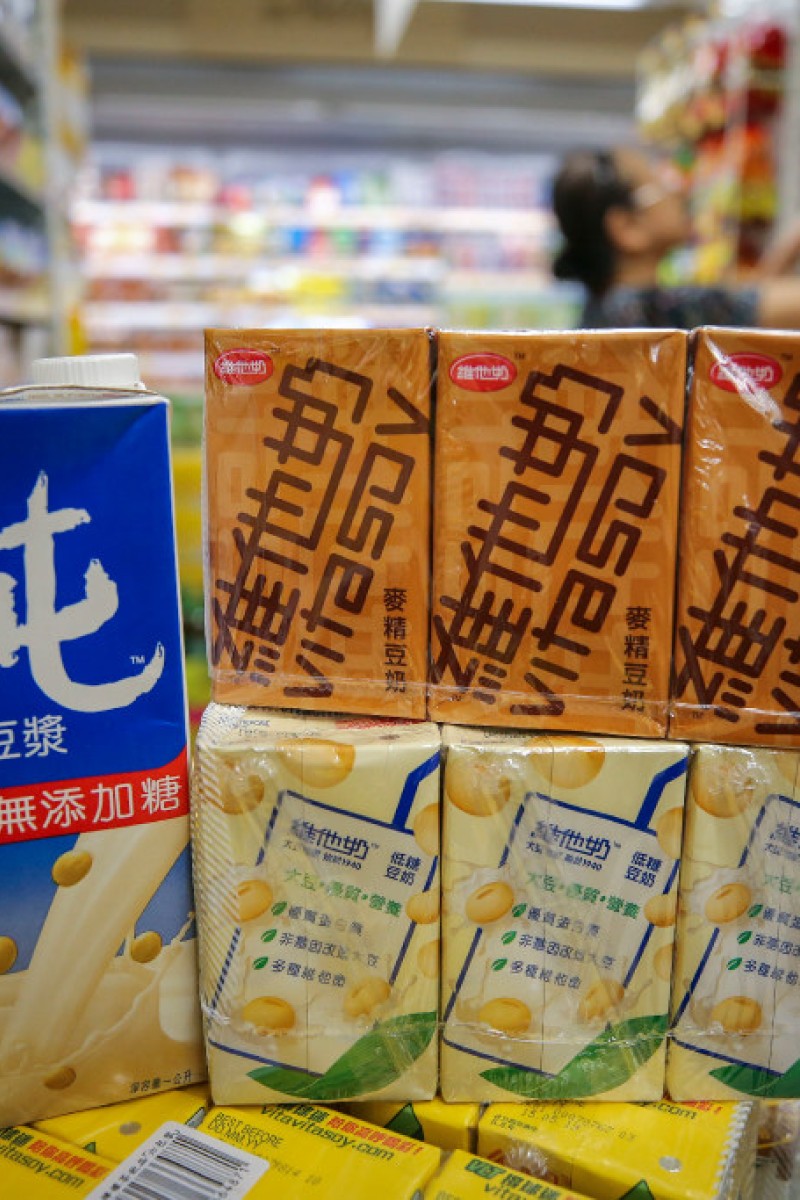
74 per cent of drinks cartons in HK landfills comes from Vitasoy, company told to take responsibility for recycling by Green Power
Local beverage giant must stop ignoring the problem and not wait for legislation before acting, green group says
 Beverage giant Vitasoy owns Vitasoy milk and Vita Lemon Tea among other brands.
Beverage giant Vitasoy owns Vitasoy milk and Vita Lemon Tea among other brands. Most of the drinks cartons piling up in Hong Kong’s landfills come from just one producer and it is high time the firm takes responsibility for recycling the containers, a green group has warned.
Beverage giant Vitasoy – which owns Vitasoy milk and Vita Lemon Tea among other brands – had been ignoring the problem and was deviating from a pledge to strive for socially responsible consumption and production, Green Power said.
The non-profit organisation launched the city’s first drinks carton recycling campaign in 2016 with the aim of proving that recycling such composite items was feasible.
About 43,000 tonnes of waste drinks cartons are discarded in Hong Kong landfills each year – enough to cover 6,179 football pitches when laid out flat. Almost none is recycled in Hong Kong.
Starting in July, Green Power set up 17 recycling stations across the city where the public can deliver waste cartons. About 90,000 – roughly a tonne – have been collected in just five months.
A sampling of 8,404 cartons received over a four-week period found nearly three quarters were Vitasoy brands, with the rest from Swire Coca-Cola, Nestlé, Kowloon Dairy and Trappist Dairy.
“Other than continue to make money, they haven’t really done much on recycling,” said Green Power senior education and project officer Tommy Yu Kin-kong.
“Why should residents have to continue shouldering the environmental costs for them?”
Yu said the government needed to legislate on a “producer responsibility scheme” for drinks cartons, which would make producers pay for collection and recycling. Such schemes are already in place for plastic bags, waste electronic appliances and glass bottles, and soon will be for plastic bottles.
Are paper straws really better for the environment than plastic ones?
“But legislation will take a long time. If Vita thinks nothing has to be done until laws are in place – this is not the right attitude.”
Drinks cartons come in two main forms: paper-plastic, which is mainly for holding milk; and paper, plastic and aluminium – also known as Tetra Pak – which is often used for packaging juice and tea.
Recycling drinks cartons is often seen as expensive and difficult work but the technology exists to sort and turn them into pulp. Japan, Taiwan and mainland China have recycling rates of 45 per cent, 30 per cent and 10 per cent. Hong Kong’s rate is close to zero.
Green Power has been sending the stuff to Thailand to be turned into pulp for use in building materials.
Yu said despite the mainland tightening regulations for waste imports, pulp was still allowed. Local recycling options are also growing.
Harold Yip of Secure Information Disposal Services recently secured financing from the government’s Recycling Fund to set up a 20,000 sq ft drinks carton recycling facility at the Science Park’s Yuen Long Industrial Estate.
We tried to live plastic-free for a week in Hong Kong and this is what happened
“We’re basically putting the cartons in a large blender with water, churning out pulp. The aluminium and impurities will also be sorted out,” he said. “The pulp will then be sold to the mainland or Southeast Asia as raw material.”
Production is expected to begin in mid-2019 and the aim is to handle two tonnes of Tetra Pak waste per day in the first one or two years, with supply coming from schools or possibly the Environmental Protection Department’s network of Community Green Stations.
The company expects to sell the product for about HK$2,000 (US$255) per tonne.
Watsons and Baguio show us what happens to the plastic bottles you throw away
Yip said the biggest expense was not the processing but the logistics and collection. He hoped the government would speed up the implementation of mandatory waste charging to increase public incentives to recycle.
A spokesman for Vitasoy said the firm would continue to promote the development and adoption of cartons with a better environmental performance, including those made with renewable and responsibly sourced materials, so long as it did not compromise food safety or the needs of suppliers.
The company also said it was discussing with “stakeholders” the level of support for developing a drinks carton recycling value chain, but did not elaborate.
The Environmental Protection Department would not comment on whether a producer responsibility scheme for drink cartons would be considered, but pledged to “keep in view the relevant developments”.
